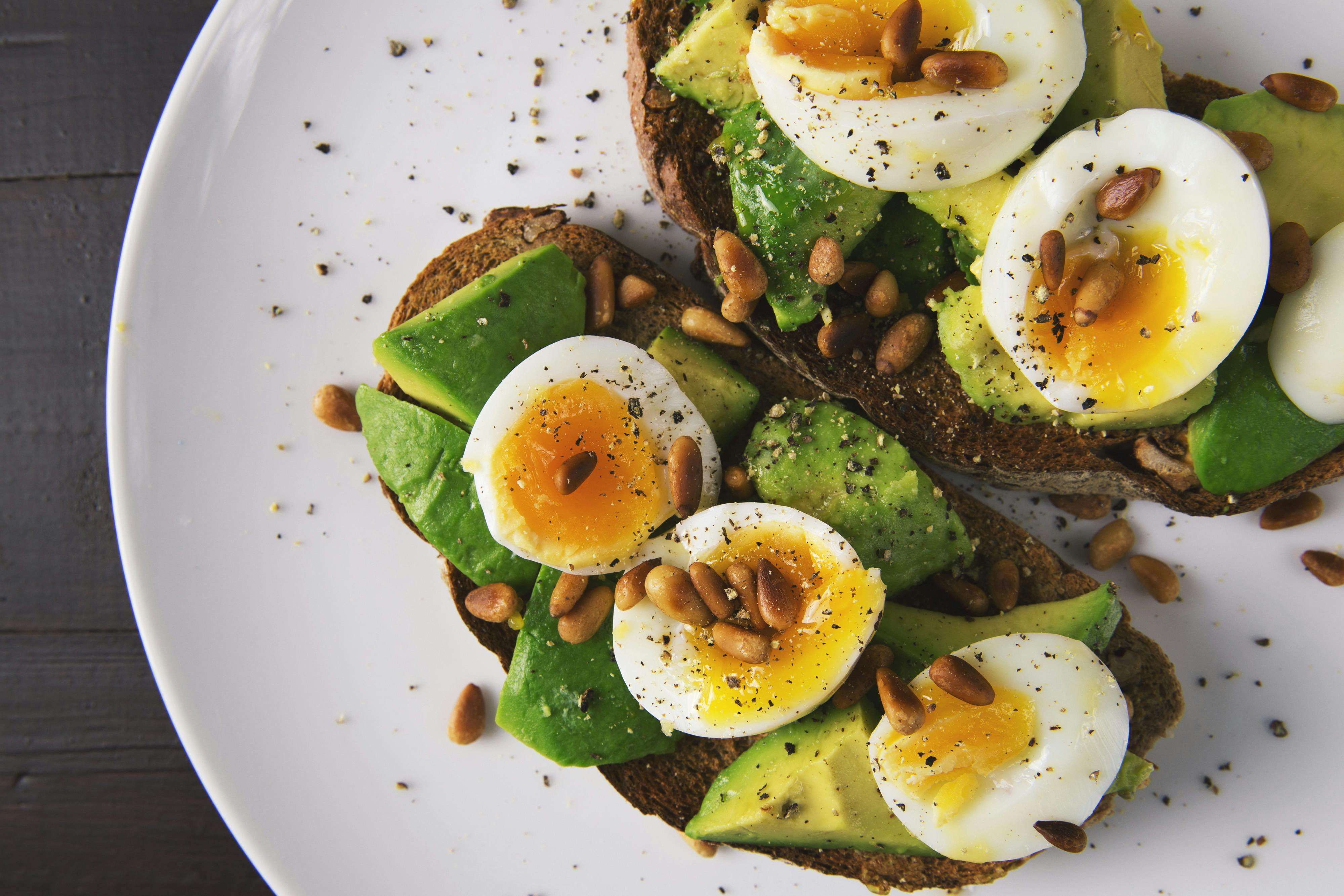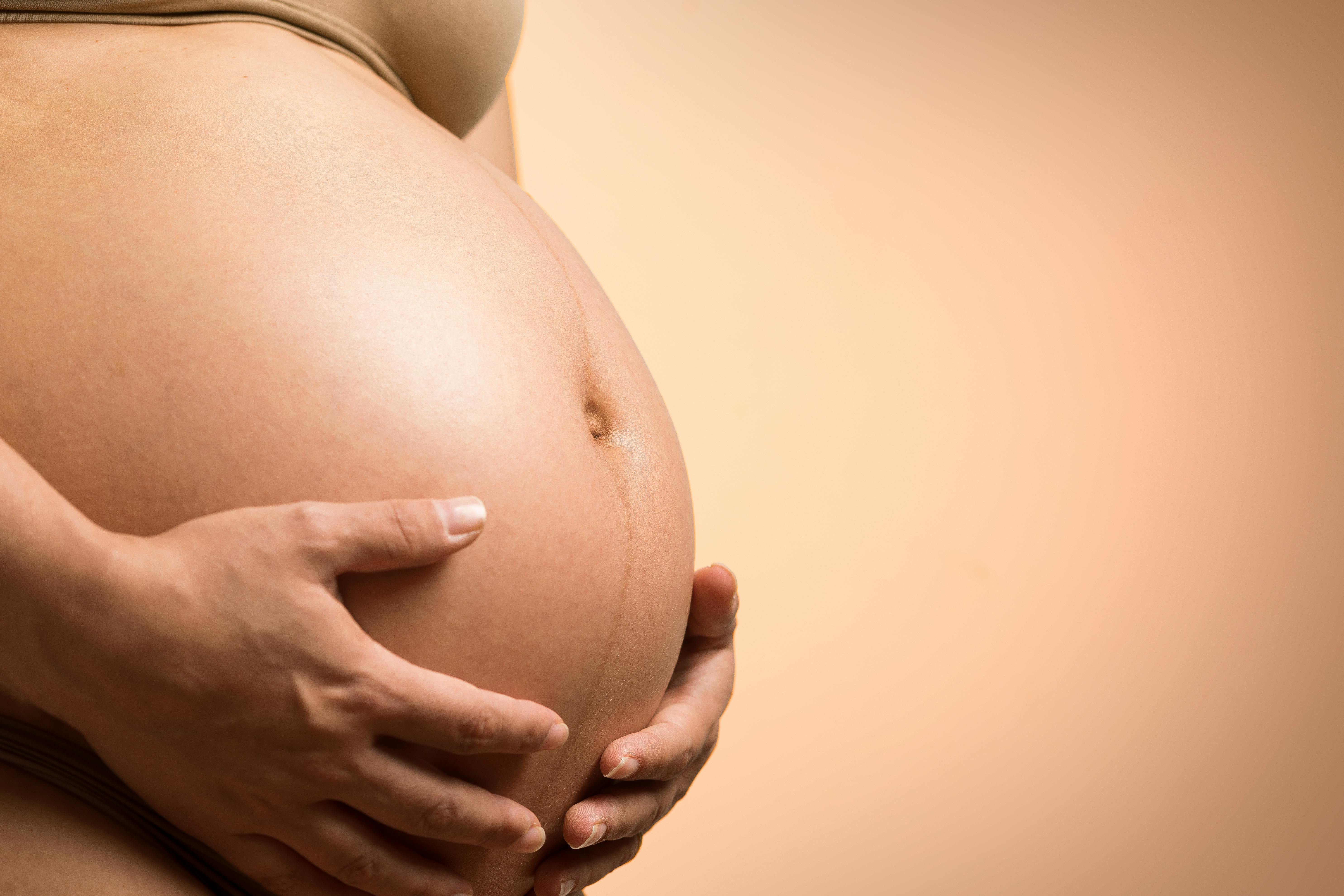You're sitting in a quiet place—maybe yoga class or the library—when a sudden, harsh croak erupts from your body.
And then it happens again.
And then it happens again, and again, and again.
You're pregnant, and you can't seem to shake this chronic case of hiccups! Are you doomed to spend the rest of your days in noisy discomfort, or is there an end in sight?
Relax, mama. Hiccups during pregnancy are normal, and they're nothing to worry about. They're just another strange part of the pregnancy experience, and there are plenty of remedies to get you through.
We've created this guide to help you understand one of the strangest pregnancy side effects. Keep reading to learn the ins and outs of pregnancy hiccups, including how to find relief from that constant croaking.
Why Am I Experiencing Hiccups During Pregnancy?
Pregnant women are superheroes, but did you know that your body might have gained some real superpowers? During pregnancy, your body needs to absorb enough oxygen for you and your sweet baby. Thus, pregnant bodies have increased lung capacity—sometimes by as much as 40%.
Naturally, it will take time to get used to this change. You might feel like you can't catch your breath even while doing regular daily tasks. This breathlessness triggers your body's hiccupping reflex and might be causing your issues.
Eating and drinking quickly can also be a trigger for your hiccup reflex. It can be hard to slow down if you're experiencing cravings, increased hunger, or other side effects, such as acid reflux.
Sometimes reducing hiccups is a matter of mindfulness. If you can slow your eating and drinking, you might not experience hiccups as much. It might also be helpful to manage your acid reflux to reduce the compulsion entirely.
Your morning sickness might also be triggering your hiccups. Vomiting and indigestion sometimes cause the reflex to go out of control. If you're eating different foods in response to cravings, they may be the culprits.
In some cases, excitement or stress can cause hiccups. Pregnancy can cause many big emotions, and those pesky hormones don't help.
When Do Hiccups Happen the Most?
Frequent hiccups are one of the first side effects that moms-to-be experience. They are most common during the first trimester. For some women, hiccups may continue into the beginning of the second trimester.
Hiccups typically happen early in pregnancy because your body is changing at a rapid rate. Over time, you'll make minor adjustments, and many strange things (like increased lung capacity or heartburn) will begin to feel normal. When this happens, you'll trigger your hiccup reflex less and less.
No matter when they happen, remember that hiccups are a natural part of early pregnancy and rarely indicate any problems or issues.
Safe Hiccup Remedies for Pregnancy
While your frequent hiccups will peter off during your second trimester, they can be very annoying and frustrating. In the meantime, you might want to try a home hiccup remedy. Many pregnant women swear by these simple, natural techniques, which may be enough to get you through the turbulent first trimester.
Try Deep Breathing

Try inhaling deeply and holding it in. This practice can help settle spasms in your diaphragm.
You might want to add some breathwork to your daily routine. It's a mindful way to get used to your changing lung capacity and find balance. It's also relaxing, which can help when new emotions are wreaking havoc.
Drink Some Water

Some women swear that swallowing a whole glass of water in a single sitting will eliminate hiccups. It might be because it has the same effect as holding your breath. Drinking water can keep your diaphragm from restricting and stop hiccups in their tracks.
Embrace Mindfulness and Meditation

Sometimes the best way to fight hiccups is to choose self-care. Mindfulness and meditation can help you focus inward, notice your breathing, and manage your emotions. Mindfulness while eating can slow you down and help you make thoughtful choices.
Change Your Dining Schedule
Some women experience hiccups as soon as they try to go to sleep. If this is the case for you, you might need to rearrange your meals.
When lunch is your biggest meal of the day, your body has more time to digest before you go horizontal. Prioritize a lighter dinner to make things easier on your digestive system.
Mix Up the Menu

Have you been craving pickles, salsa, and salt and vinegar chips? These foods contain a lot of acid, vinegar, and spice, which can lead to heartburn and reflux, which may trigger your hiccups. Choose a milder treat and prioritize your overall nutrition.
Carry Candy
Sometimes a piece of candy to suck on is all you need to stop hiccups. Like breath-holding, sucking can trick your diaphragm into relaxing.
Certain types of candy can help with nausea and heightened sensitivity to smells. Try mints or ginger candy to get the most bang for your buck.
When to Speak to a Doctor
In rare cases, excessive hiccups can signify another medical problem. If you've experienced non-stop hiccups for 48 hours or more, it's appropriate to consult a healthcare professional.
Never feel ashamed or embarrassed to speak to your doctor, even if it's about a silly side effect. They can provide you with guidance and solutions.
Take the Hiccups Out of Your First Pregnancy
Your body goes through many changes during pregnancy, and an excess of hiccups is just one more adjustment to handle. It might be comforting to learn that your sweet baby is experiencing fetal hiccups, too! Ultimately, hiccups during pregnancy are a normal (but uncomfortable) side effect that will go away during your second trimester.
Once your precious baby is here, every sweet, tiny hiccup will be a cause for celebration. With the Pixsee smart video baby monitor, you won't miss a single milestone. Visit our online store to learn why Pixsee is the perfect companion for your baby's growth journey.









